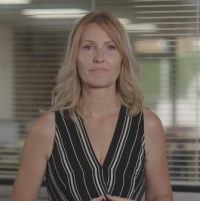Podcast 9
The show is hosted by Colleen Dwyer, a senior Allen Carr’s Easyway facilitator who is joined by Cris Hay and Chrissie Hynde

Available from wherever you get your favourite podcasts /podcasts/#subscribe
Featuring Cris Hay and Chrissie Hynde
Please click the video below to watch the podcast

This episode covers a range of topics such as overcoming debt, technology addiction, and dealing with a loved one’s gambling problem.
Also in this episode is Cris Hay, a long-standing Allen Carr facilitator specializing in smoking, alcohol, and drug addiction. Cris has first hand experience with the power and effectiveness of the Allen Carr method, having used it to overcome his own struggles.
Chrissie Hynde of the Pretenders credits Allen Carr’s method with helping her quit smoking and drinking . We’re grateful that she shared her experience during her interview on the BBC.
We’re here to address any addiction-related questions you may have. Even if your question doesn’t make it to a future episode, we will personally reply to every inquiry, offering detailed advice and guidance.
If you’d like your questions answered drop us a line on pod@allencarr.com with whatever you’d like to say or any questions that you have.




